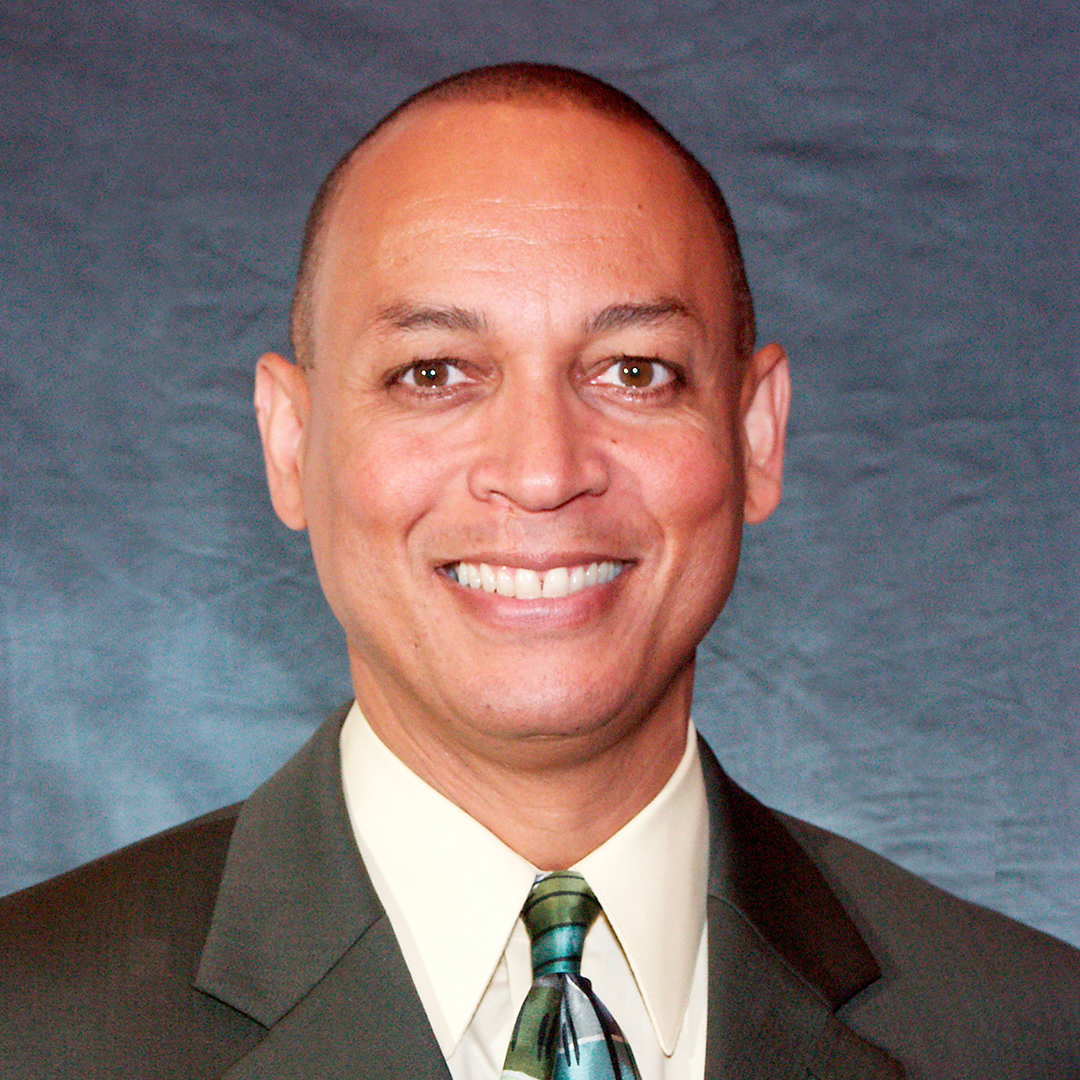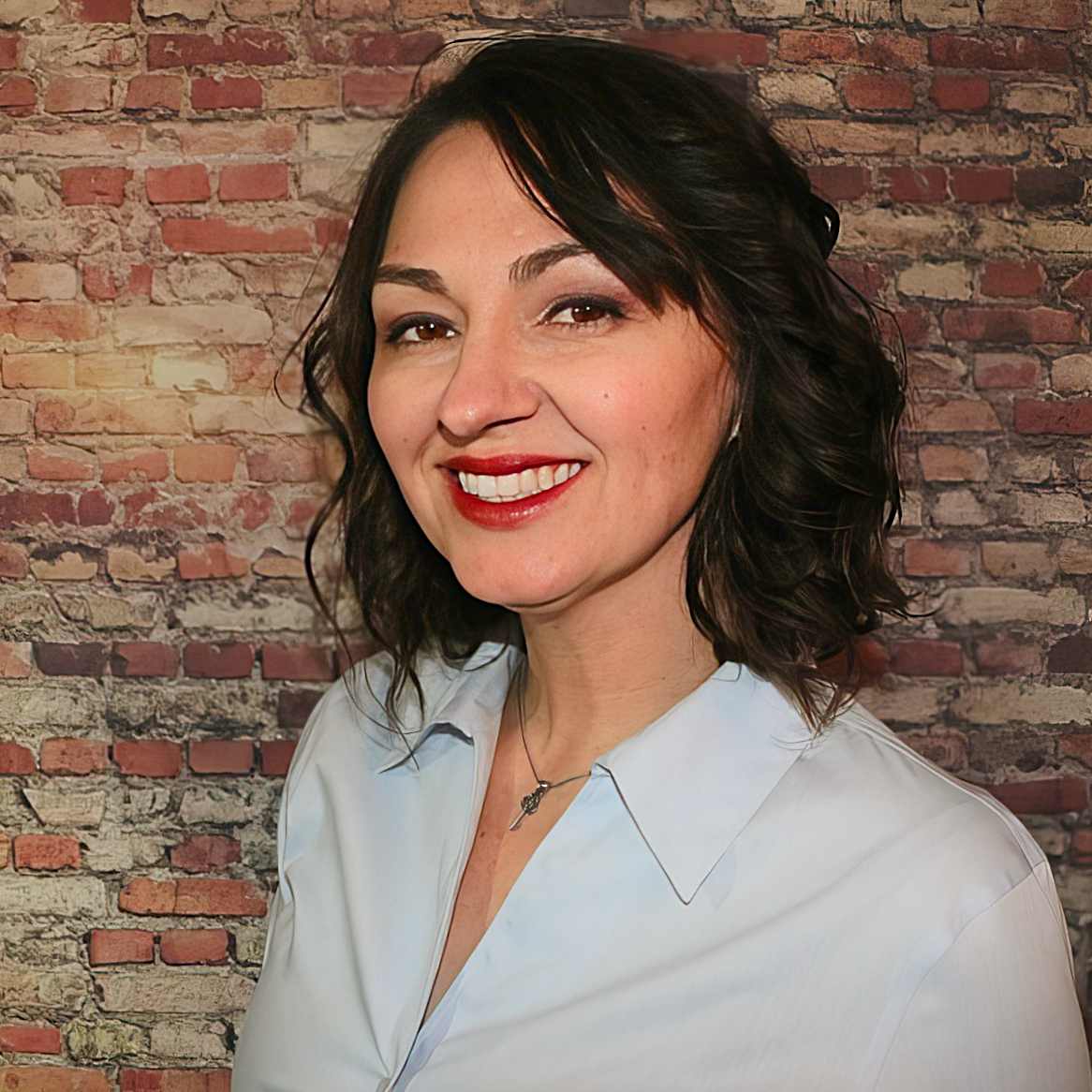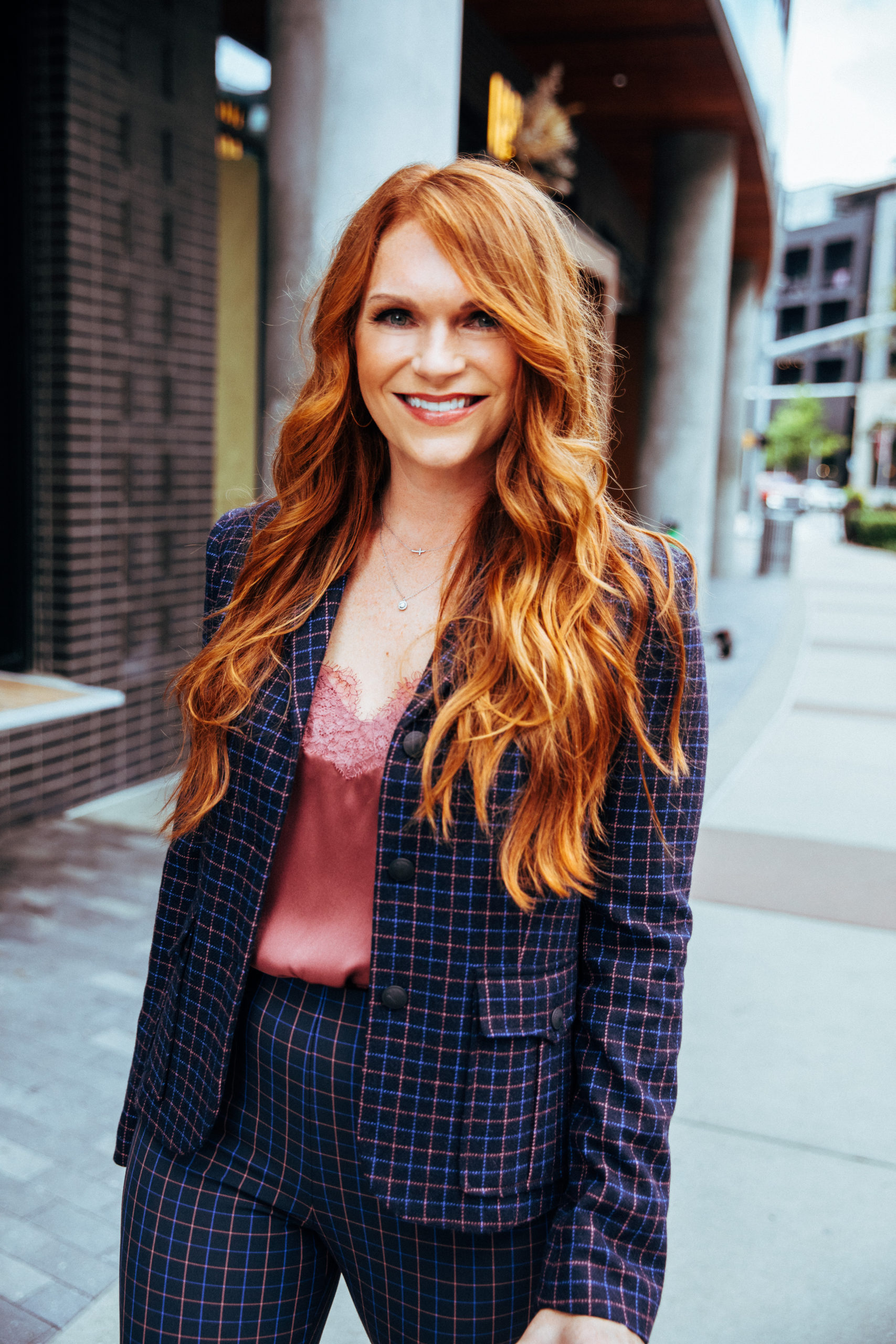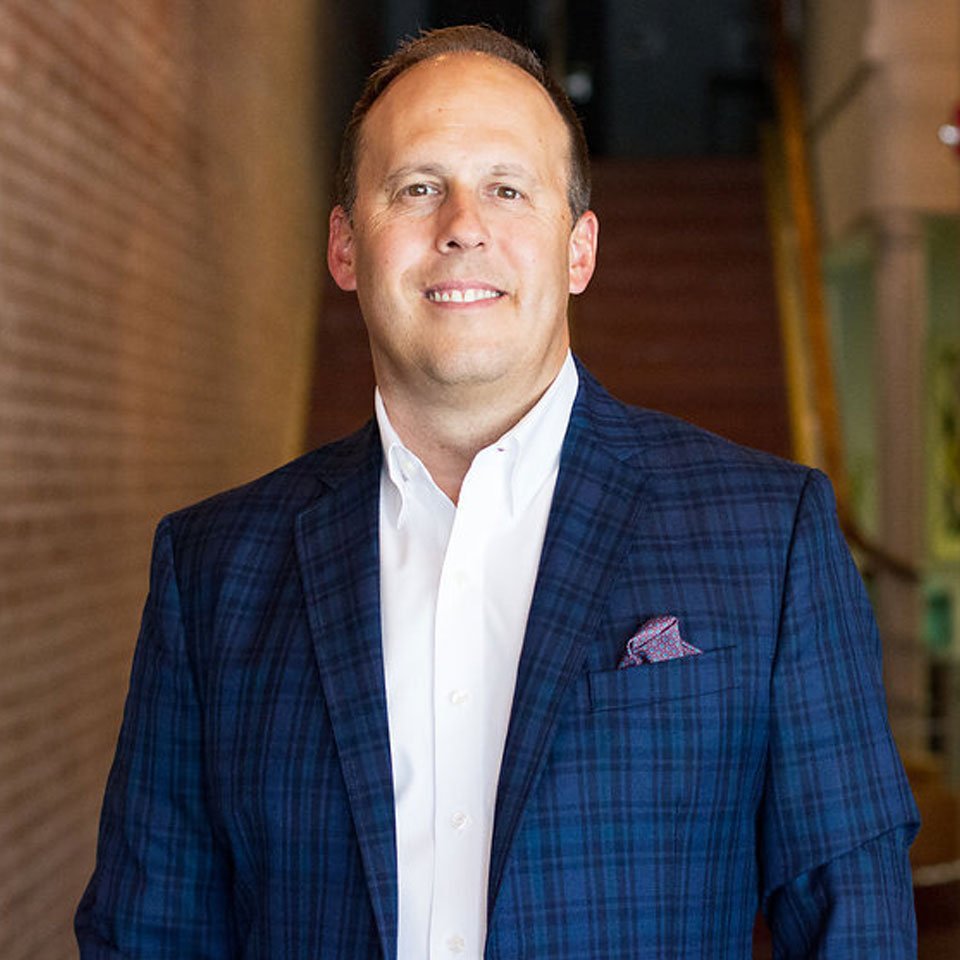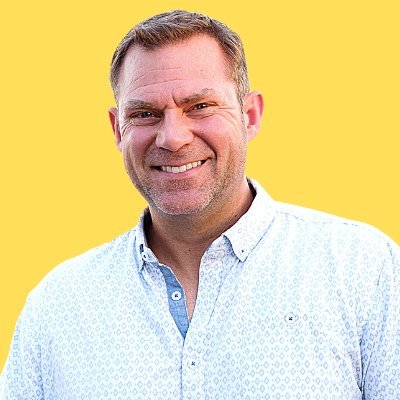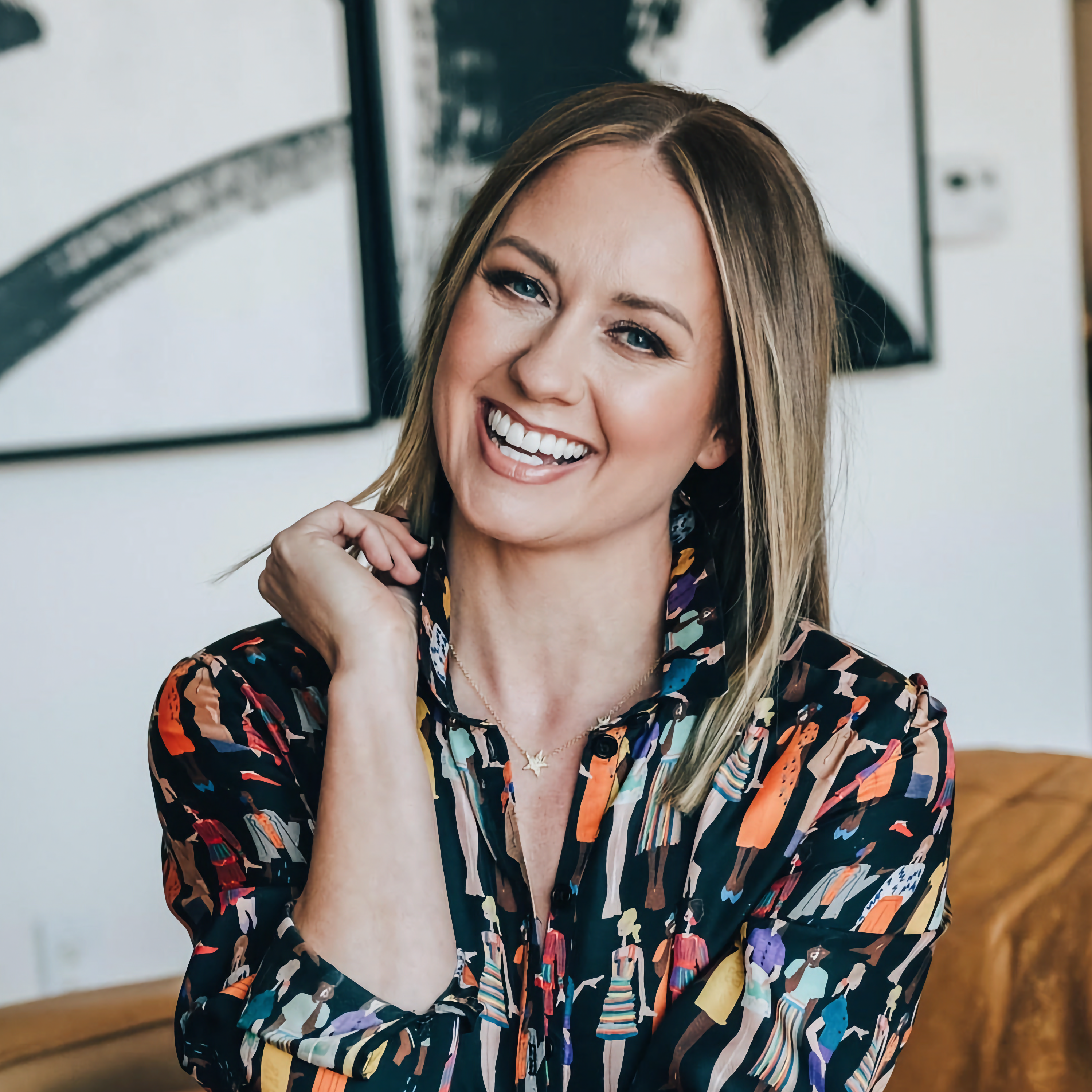RV: (00:01)
Yeah, there was a time when I had a dream the first time I had a dream to be a professional speaker and I didn’t know exactly what that entailed. And one of the first people I encountered on that journey is the man you’re about to hear from Ed Tate, who now at this point we have known each other for coming up on 15 years and he is wild to think about that cause this, this man literally knew me like at the very, very beginning. He and I were actually in the same toastmaster club and he had just won the world championship of public speaking, which was the biggest thing that I could ever imagine at that time and was one of several people who mentored me. He is also a certified speaking professional. He has really been a corporate trainer and keynote speaker for you know, the last 20 plus years and he’s fantastic on stage. He’s also an executive coach and does a lot of like kind of presentation coaching for media and you know, people who present like a winning high stakes presentation. So anybody who has like an important presentation, whether that’s a keynote or just like presenting and he has a fascinating journey that I think is different from a path that you, you may, you may hear about often. So so glad to have you old friend. Welcome back and thank you for being here.
ET: (01:22)
Well, thank you for inviting me, Rory. I really appreciate it.
RV: (01:25)
So at Brand Builders Group, we study reputation, you know, that’s our new space. We like that. Our little pivot from, you know, everything was all about discipline and now we’re all about reputation, which are kind of connected. But you know, when you just hear that word, you know, like you’re someone I think of just as a great reputation. Everyone knows you’re a great guy, you’re gonna kill it on stage every single time. But when you hear the word reputation, what do you think about, like what is your definition of it? What are your personal philosophies on building one and, you know, how important has it been in your career? And, and just give us like a little bit on that
ET: (02:02)
Reputation. I think it’s that mental space that you possess in someone else’s head. That’s what a reputation is. You know, when we think of, you know, the, the tried and true examples, McDonald’s, you know, I’ll or FedEx, et cetera, FedEx just rang my doorbell just a couple seconds ago. They have specific reputations and you know, I think the worst reputation you can have is like no reputation and that is be the best secret that no one’s ever heard of, you know. So I think that’s one of the challenges Here’s something else to consider as well. You know, like you mentioned, I’ve been in this business, there’ll be, it’s actually 19 years this year and you’re doing this professionally.
ET: (02:44)
Condoleezza Rice said you never wanted to be the past, anything, you know, and, and I think that you’re constantly want to evolve. You, you constantly want to develop your brand. You constantly want your brand to stay with the times and the relevant, if you will. So in my particular case I got my start my jump by winning the world championship of public speaking and we can talk about that like a little bit later on. Okay. That helped my career and then I became a CSP, a certified speaking professional, that helped my career. I was in this space called making managers into leaders. So for example, my customers or my clients, they know me it with that brand in that particular space. Does that make sense what I’m saying? So far? Yeah. And I’ve, I’ve constantly tried, like your company is evolving into a new space. Okay. You’re into brand building, right? Right. Okay. You are disciplined before or that was the brand before you’re evolving because the marketplace says this is something that you need to do. And I think this is something critical for all of us
RV: (03:46)
And be the one that compete. Okay.
ET: (03:52)
Well number one, like when you’re starting out, you know, what is your brand? You have to establish your brand. And then number two is you got to get the word out in terms of what is your brand. Cause if you don’t I think the worst thing you can have is saying this sameness as the enemy of any presenter or any company when you look and sound the same like everyone else. And that’s a Patricia Fripp Buddhism if you will. Then no one that no one’s going to recognize you.
RV: (04:18)
Huh. Well I think that’s really interesting because I think a lot of people who are just starting on their personal brand journey, like they either are doing the work of figuring out who they are and what their brand is about. Or there’s some people who immediately jump into like telling a bunch of people but they’re not totally clear on it. And, and it’s like you have to do both. You know, we say the reputation formula is results times reach equals reputation. So I think that’s, I think that’s interesting. So I wanted to ask you about how you got your start as a personal, it was building your brand and one of the things that I think is, is you very unique about your, your past. I mean we have the world championship push. I want to hear about it. I want people to know what that is. But you also worked for a company doing other people’s content first and that’s a model that I think is really good for a lot of people that not enough people talk about everyone thinks I got to create my own content, I got to like build everything and do it all from scratch. And you know, if I remember correctly, you sort of started and spent a fair bit of time like teaching other people’s content. Okay,
ET: (05:26)
First. Yeah. Why? I worked for a company called career track career track at the time was the largest public seminar company in the world and I worked for them for exactly 18 months. So it was, it was part of my strategy to get experience and I wanted to like a, there’s a friend of ours, his name is Darren Lacroix and he says stage time, stage time, stage time. I wanted to get a lot of stage time, so that was my purpose. That was my strategy to get a lot of stage time and I did that for exactly 18 months. Then I worked for another company called them like leadership and we would get leadership programs and I did that for like another two years, but it was a strategy that a got me a great deal. That was a stage time number two. It also got me a lot of credible customers and that can actually put on my resume, if you will.
ET: (06:14)
So, you know, for example, glaxosmithkline, Johnson and Johnson and Nielsen, Nielsen Ratings Company, you name it. Like if you go to my website, so who’s who of Corporate America? Well, because I worked for this other company, I was able to legitimately claim that I actually work with those particular organizations. It gave me the other, the third thing is that for me, it gave me, it may be bulletproof onstage. I honestly believe this to be true and I know you have the same skill. There’s nothing on stage that can happen that I can handle. I got that experience by working for career track. For example, one, I’ll remember one particular client in particular a, the postal service in Dallas, Texas. Okay. And it is my first day leaving corporate America. Okay. It is my, this is my first Gig after I’ve left Corporate America, I’ve left this really nice paycheck. Okay. And seven o’clock in the morning and I’m passing out workbooks. I, I pass on a workbook to those good old boys, six with five of biscuits, shy of 300 pounds. And he just stands up and he yells, I don’t want to blank be here now. Blank is not the word he used.
ET: (07:22)
Anyway, immediately skew security comes in, they’ve got guns, Poles. And I’m thinking to myself, what is the, I can call my boss and still get my job back cause I’m thinking, well what in the hell have I gotten myself into? So apparently something had happened over the previous week and they, they were like this heightened alert, if you will. And the fact that this guy was yelling, they were just, you know, security was hyperspace sensitive sooner when they called the boss and the bosses, this woman she is, she’s not even five feet tall with high heels on. All right. She says, what’s going on here? They explained what was happening. So the good old boy, the boy, this woman and I, we walk out in the hallway now you got to see this. I’m watching this. This guy is huge. She’s this little tiny woman and this is back in the day when they had the Motorola flip phone and remember that I was like, you know, like a star Trek.
ET: (08:11)
So she said, Huh? She says, you’ve got two choices. Choice number one, you can go back there and shut up and listen to this guy for the rest of the day. Option number two is I’m going to call your boss and tell them what’s going on. So she whips out her a flip phone. She starts dialing a number. She says, I got one more digit. What’s it going to be? Hmm. Wow. Guess what he did? He went back in there and he shut up for the rest of the day. Now I did my program and the guy walked up to me and he apologized and said, you know, I apologized to you. I really needed to hear this. But the lesson I learned was this. It’s always your stage that woman taught me, no matter where you are, it’s always your stage, you know. So again, going back to the point, there’s nothing on stage that can’t handle, I love Dallas,
RV: (08:56)
A postal service because they, you know, I learned many, many lessons about being on stage and again, nothing that that can handle on stage. Yeah. Well and, and I think what that’s, that’s, that’s interesting and just a great model. I mean that’s, that’s the whole point is I want people to have their eyes open to her. You can start by working for someone else. You know, that’s a, that’s a good way to like kind of build up. And it’s real common. I if I remember right, I think Tony Robbins did that. I think mark Sanborn did that. He’s another hall of fame speaker. Mark St Horn. He was, he worked for career track. Laura Stack worked for career track a w as what if like a career track was called the crew track mafia cause it was actually basically
ET: (09:33)
Out of Colorado and does ward. There’s a lot of people who are actually in the speaking hall of fame today. Got Their start working for someplace else. Now the flip side of this is this do it only for limited amount of time. And what I mean by that, it is so easy to do it for, you know, for years and years and years. When I started doing this, I knew specifically 18 months, I literally quit 18 months to the day regardless of how popular I was with the company because I, I saw other people be there for eight nine, 10 1115 years and I didn’t want that to happen to me because I realized if I did that I would never be able to start my own business,
RV: (10:13)
Which is what you wanted to do. So some people may be okay with that, but like if you have the vision, then it’s like you’re using it as a stepping stone deliberately. Exactly. How did you make the, tell me, how did you, how did you make the leap? Like how did you actually start? I also happen to, you were being very highly paid in a corporate environment. That’s not an easy thing to walk away from the, and then when does toastmasters show up on the scene and like what, what does it mean to be the world? I mean you are literally the world champion of public speaking and there’s probably a lot of people that have not actually heard that term before. So, so walk us through like that transition of what it felt like to leap and how you did it and you know how to toastmasters fit into that. Okay, so I’m a, I’m going to tell you a story that you haven’t heard before. Okay. How I got started with this in the first place. A number one is I’m a stutterer. Okay. And there is no cure. First
ET: (11:10)
Salary. And when you grew up in a neighborhood where your stutter, guess what kids are, they’re horrible. You’re absolutely horrible. So my dad was in the military and we would move to a new neighborhood almost every 18 months to two years. So we’re moving to Chicago and I was sick and tired of being sick and tired. So one thing I did in preparation to move to this new neighborhood, because I didn’t want the new kiss and know that at the start or cause they’re gonna make fun of me in school. So I read newspapers out loud. I used to practice in the mirror during the summer. Kids usually like to play basketball. And that was really good at doing play by play outside doing basketball. I was so good that the other kids would give me their names and I would just do that.
ET: (11:50)
But it was a way for me to actually practice speaking. So how do I get started in this is I don’t want to be made fun of by kids. That was my motivation. I happen to go to a high school that had an a a TV station. I was a news anchor for four years. I went to a college that I actually got a job as a disc jockey. I was a number one disc jockey, my entire four, not a college station and actual radio station. And I did that. So these things prepared me for not looking back on it. In hindsight, those things prepared me. So when I actually competed for the world championship and the year 2000, those things prepared me. At the time I wasn’t executive, I was actually working for the Denver Rocky Mountain News. I was their, their, their training director and they were very, very supportive of me at that particular time.
ET: (12:35)
Now for those of you who don’t know what the world championship is, it’s a year long competition, 25 to 35,000 contestants and in the year 2001 the entire thing, Rory knows about this cause he’s been on a big stage a couple times twice. It is. And I want to tell you this, I, Hey, don’t make it on the stages as remarkable. You know, it’s absolutely remarkable. And most of you, if you follow Rory, you know how good he is on stage. You know, I like to say too, anybody can win at once. It takes a real man to lose twice.
ET: (13:14)
Okay. You keep going with that story. Okay. Anyway, so then your next question, how to make that transition. I, I literally, I told my wife, I said, I really want to try this. I said, I think this is something I really, really enjoy it and really good. The fact that I won the world championship, I got like a lot of the media attention right away. People dear old started approaching me, et Cetera for the first time. So I was at the right place at the right time, et cetera. So I got a lot of attention. I also knew that this was temporary and it wouldn’t last. So I I, I relied on my business acumen skills. I said to myself, this is something that I actually have to promote. I have to market. I just can’t wait. I can’t just sit back and wait for the phone to ring.
ET: (13:59)
So it was combination of taking advantage of the opportunity, which would tap into me and also marketing myself. You and I, you know, this is a term of endearment. We’re sales dogs. And what I mean by that is we both know how to sell. We both have know how to market, you know, we don’t have to close deals, we know how to close business, et cetera. So I’ve made a decision. The decision was like, if I could not make the same type of income I was making in corporate America, this was going to be a hobby. I was very, very clear about that. Being on stages, addictive. People love it, they love the attention, the adulation. But for me is I have a family. I got to take care of my family and if this ft I can’t make the same type of income that I made before then I was going to go back to corporate America. I went to my wife and I told her, I said, it’s going to take me a year to get this off the ground. Just give me a year. And if, if I can’t get it off the ground, I would go back to corporate America. So after a year we still weren’t making the income that we, that I was accustomed to. Now at the same time,
RV: (14:58)
I don’t hear as fast though. Like that’s, that’s, I mean that’s fast.
ET: (15:03)
The way I looked at it, I didn’t have a choice. It was just like it was going to be a year or not. Now I also told my wife, I says like your, your lifestyle will not change. Fortunately for me, I had a lot of money in the bank. I didn’t have to work for four years if I didn’t want to. Wow. I said, your lifestyle will not change. So if I can’t make this happen in a year, I will interview and I had a reputation in the computer industry. I’ll become an executive again. And that’s what happened because of the income wasn’t there. I interviewed, I did kind of cheat a little bit and what I mean by that is that I told the company that I am not going to start for six months. So I actually bought myself an 18 month window and that was a point where I started to see that the income was going to match my previous income. And then from that point in time I never looked back.
RV: (15:45)
So what were you doing like, like I think this is the thing like it’s interesting to hear you say this was one of the reasons that I wanted to have you beyond the fact. Interesting side note, I don’t know if you’ve ever noticed this. I tell a lot of our members and stuff that I s I studied 20 years of world championship footage, I graphed all the presentations. I measured the average number of lasts, the amount of time to the message, how many times they hit the message. And a lot of people think of Darren. Darren was like my humor mentor, right? And people think of him as the funniest, but your speech has the most number of laughs. I know. And a lot of people don’t give you credit for that. But
ET: (16:26)
So back, there’s a book where they actually documented the number of laughs of links of the labs, et Cetera. So I’m number one. I always pull that over him. Every time I see him
RV: (16:36)
There it is. So, but, but so you won the world championship. And I think what I want people to see is, you know, you might think, oh, something happens like that and that’s how you become a speaker and all of a sudden you’re a speaker the rest of your life. So it’s kind of like I want, I want people to be in touch with both the reality of you, you it, even doing something like that, you still have to promote yourself and also be in touch with the reality that even if you don’t do it, you know, and like I, I guess that would be an example. Although I got, I got pretty close that you can still build this, you can still build the career without it. What matters is not so much the trophy, it’s, it’s, it’s the process and the hustle after that. So what were you doing to get clean?
ET: (17:20)
Okay. So I’m going to jump ahead seven years because the experience I have is not a normal experience. And that is, again, I got media coverage, media attention right away. I got, I got an agent, I got speakers bureaus, I got training companies. That’s not a normal,
RV: (17:40)
Not anymore particularly these told about that time. It really did kind of like, it happened instantly
ET: (17:46)
And I also was smart enough to, I constantly had to market myself as well, so I can’t, so that happened that there was a seven year window, Rory. I literally didn’t have to pick up a phone and then we had to the worldwide economic crisis of 2007. So I want to pick up my stories from there. I lost it all. I lost the agents, I lost the training companies, I lost the consulting firms. They all went away. I had a half a million dollar business and it went to two zero in two weeks. Okay. A person I called up at the time was mark Sanborn. Mark Sanborn. Is he speaking hall of fame? I’m pretty sure your, your followers know who he is. You’d just Google him. And I explained to him what happened and and he said, ed, what you need to do is let go and let God, and he says, you need to get your hustle on.
ET: (18:33)
You know, you need to let this go. Because I was so distraught, you know, and I was like, Oh, poor, poor, pitiful me pour for filled pedal for me. And then I called up another friend of mine and her name is Lisa Joe Lansburgh. And again, I was about to cry this, this about the had this pity party, right? And she said to me, she says, ed, I can’t talk to you now. I says, what do you mean at least Joe, you went to my best friends, you know, why can’t you talk to me now? She says, I just found out my next door neighbor, they’re little, they’re four year old and their five year old daughters have been assaulted. Can’t talk to you now. In that moment it was like, you know, there are significantly more important things in the world than you losing your business.
ET: (19:17)
These little girls have lost their childhood, you know, and they’re never going to get that back. And my pity party was literally the over that day it was over and I said, and just like mark Sanborn had advised me, get your hustle on. So every day I have this philosophy, never put up a zero. And what I mean by that, every day, reach outside of these four walls and tell somebody about and ask for business. Now am I successful every day? No, but you know what? I like my chances, you know? And actually that was that philosophy. Help me make it through. Starting from scratch. 20 think about 2007 2008 worldwide economic is the, the, the Great Depression of our lifetime. It’s never, the economy’s always your economy and there’s business and every single economy, as long as you’re willing to reach outside of your four walls every day. That’s what I learned.
ET: (20:12)
So guess what? I still do that to this day. I’ve just closed a deal yesterday. You know, a coaching client yesterday. Guess what? I reached out every single day. Never put up a zero. Now, there are times when I put up Zeros. Yes, absolutely. Here’s the key. If you don’t, if you, if you, if you do put up a zero, don’t beat yourself up. Sometimes you know your schedule doesn’t work out so you can’t reach outside your four walls. Start a new wedding straight. So that was my mindset. That was my philosophy. But that’s like, that’s like maybe you’re putting up a zero in terms of a client, but it’s never, it’s never zero in terms of
RV: (20:48)
Effort. Like you’re exactly, you’re always making that. You’re always making that call. You’re always sending that email. You’re always making that out. Yeah.
ET: (20:55)
New when something there’s, you could do one thing every single day. If you do one thing every day, let’s, what is it like 260 business days? That’s 260 outreaches. If you just do one activity a day, guess what? You’re going to, you’re going to get some business. If your readings out once a day for 260 business days, you’re going to get business. You’re going to stumble across the business.
RV: (21:16)
Yeah. Well, so talking about keynote, so it sounds like, you know, for awhile, that’s interesting. I didn’t actually realize you did sort of have the fantasy of sound like for a little while, for a little while. Like it was in a way, I guess back in those days it was w you know, there’s an element of the world championship that is a little bit like American idol. You know, it’s a big for people in that space that know it. It’s, it’s a big freaking deal. You know, and we traveled the world for five or six years after speaking to groups. That was how we saw the world. And that was a big part of how I started my career, even though I didn’t I didn’t when I came in second for, for the record.
ET: (21:53)
But Rory, here’s the point. It wasn’t necessary that you want. Yeah. They, some people still treat you like a world champion. They saw you on the big stage and you were smart enough to leverage it. And that’s the lesson here. You know, actually, you know what has actually meant more to my career than winning the world championship is being a CDSP. And here’s the cool part about being a CSP. A CSP is everyone who’s listening to this, you know to this broadcast, they can become a CSP. There’s only one person who wins a world championship every way. It’s not the trophy, it’s the metal. You know, I gotta I have a metal right there that says I’m a CSP. You know, I’ll only word that one day. You know what, it’s, the CSP actually has meant more to me and more to my career then than the trophy and then winning it. So you were able to leverage it. You’re proof. What I’m saying is that that puts you on a platform and you ready to deliver that platform.
RV: (22:52)
That is the point that eds no, I, I totally get that. And that is, you know, I never really thought about that. Yeah. The only one person gets to be a world championship, but to CSP that Ed’s talking about is called certified speaking professional. It’s the highest ranking earned designation that is available through the National Speakers Association, which is sort of the governing body of the speaking profession specifically. Ed and I are both CSPs and you, you, you know, they try, they have to, you have to, they audit like all your clients and all this stuff. So, so on the topic of speaking, just since that’s sort of like the world that we play in and we live in, where do speaking gigs actually come from even today? Is it, is it, is it the outreaches that, like if you go, okay, I got so many speaking gigs on my calendar, like where do they in, in real life, where do they come
ET: (23:46)
From? How do you, how do you get them? Is it called outreach or what? So it’s a combination of things. And I’m sure you teach this to your followers, you know, it is a combination of you know, writing leads to wealth. Okay. So it starts, it starts with writing, you know, so like a, if you have, you know, if you have a podcast, if you have a newsletter, et Cetera, whatever your intellectual property is, make sure that you get it out to the world. So writing leads to, well, so like that’s, that’s one form of outreach. Another form of, I’m a salesperson, so I’m sold a half a billion dollars worth of computers in my career. I have no compunction whatsoever calling cold calling companies. Now that’s old school and I know how to do it. And we do that on a regular basis. We also have marketing campaigns.
ET: (24:35)
And what I mean by that is, so for example, I have an assistant, so my assistant, she has access to three of four different databases. We, we on Mondays we go through these complete databases. We, we identify organizations that have putting on conferences, et Cetera, where I would be a good fit. And then when, what we do is we identify those particular individuals and then we started an email campaign to them and we send out three emails that go out over six weeks where people respond to them. We we, we send them information about us and we get into conversations. And then for the people who don’t respond to us, we put them in the, into the pot for next year. So that’s part of our process. So we have a system that we use every single day that we make sure that something from our organization is going now.
ET: (25:23)
And right now we’ve got, we’ve got like pretty much on an automatic process. So you have to have some type of system where there’s, you know, and using technology, using people. However, whatever type of system that you have that constantly sends out who you are, what your brand is, publishing your brand. Cause I think it’s a killer for you not to do outreach in some form or another. You don’t have to do cold calling. That’s my super power. I’m a former C level executive. I think I can call, I can get on the phone today and call a c level executive Cole, because I’ve been in her position, I’ve been in his position. Does that make sense? And this the thing I’m inviting people to do. What’s your strength? So for example, with me, I suck at social media except linkedin. I’m damn good at linkedin.
ET: (26:10)
Linkedin has made me thousands of thousands dollars. I haven’t made it. I haven’t made a quarter from Facebook. Okay. So Facebook doesn’t work for me, but you know, use the tool or use the channel that works for you. That, that would be my advice. Now, am I going to ignore Facebook? Of course not. I got to figure it out. You know I want to leverage youtube more. I want to, I want to do live streaming more. So these are things that I need to get better at. These are rope. These are roadblocks for me today. But you know, if you interviewed me a year from now, Rory, I’m a, I’m a figure it
RV: (26:44)
[Inaudible] yeah, I think it’s a, that’s an interesting distinction too. I think there’s a lot more people who are in the brand builders group community that are good at social media and are wanting to be a speaker. Then there are speakers and that don’t use social media. And I think it’s interesting, the speaking world is one that social media certainly helps just because it’s an avenue to pump your intellectual property out there, but a lot like I would, I would venture to say a lot of the busiest speakers I know the highest paid speakers do not have a huge social media presence. And if it, I mean there are some, when you get into the celebrity level of speaking basically, so there are certain social media people who become celebrities. This is the j Shetty’s of the world right now. Mel Robbins, Rachel Hollis, of course, Rachel wrote a book that sold millions of copies sold and Mel Robbins Jay Shetty would be a good example. Gary Vaynerchuk would be a good example. I like that. But that’s the rare, rare exception. Most of the people who are making a living as a speaker, it’s not really coming from social media per se. It’s more from being out speaking, just introducing, showing videos of them, talking and like getting them in front of the people who book, who book meetings.
ET: (27:59)
Well, once thing I did is I invested, I have this phrase, invest for your interest. So I you’re like in the middle of the economic crisis in 2007, 2008, I did something counterintuitive. I actually spent more money on coaches and investing in programs than I did the previous decade. Counterintuitive. The reason I did that is because the world as I knew it in terms of marketing and promoting myself no longer existed. It didn’t work and I needed fresh ideas. I also needed someone to hold me accountable. So one of the programs I enrolled in, and it wasn’t to coach anybody, it was for me to learn about marketing is I became a certified girl marketing coach. And here’s one of the things I learned from that is I have, I did not have enough channels in terms of people finding out about me. I had a website, I had a business card, I had a, a, a one sheet package and that was it.
ET: (28:56)
I only have three ways that people could ever find out about me. Guerrilla marketing and says you must have a minimum of 10 and I’m going to say today you got to have a minimum of 20 social media is only one. It’s not like, oh I’m on Facebook, I’m on this. None of that. No, no, no, no. That’s just one type of channel that’s only, that’s on the van. Only counts as one. What are different ways that people can find out about you in terms of your business? So I think one of the things that, you know, again, I’m going to call them ordinary everyday people, you know, non household names. What you need to do is you need to have multiple channels in terms of how people find out about you and your, and your company is perfectly positioned to do that for them.
RV: (29:38)
Yeah. I mean we, and we teach those of you that are watching, that are familiar. When we teach the con the content diamond is a big thing that we talk about, you know, creating one piece of content, just tearing it apart and repurposing and all these different outlets and, and so forth and so on. But I agree with that. I, I remember I heard someone say one time they said, you need to pump your content out into the world as fast as possible and as many mediums as possible, every which way you can. You can get it. And it’s just, it’s just a matter of people knowing about you. And, and that became one of our taglines at brand builders group was like, if, if people, people don’t know about you, they can’t do business with you. I love, I love what you’re, what you’re saying there Ed.
RV: (30:23)
So buddy, we could go on and on and on about this stuff. I think this is so fun for me to walk down. Some of it nostalgic. Where should people go connect with you if they kind of want to follow you and, and, and see what you do and, and you know, just stay plugged into what you have going on. You can, you know, the easiest is this like Ed tech.com EDTA t.com and you can find my, you know, Facebook and all my social media. You can find it from there. So if I’m not promoting anything, so if you want, you want to hang out with me, find going to connect me with me. Just go there. Yeah. Well, and I mean, when it comes to presentation coaching, I mean, I still to this day, like, you know, the world champions when it comes to the mechanics of speaking from the platform, the world champions are, they’re the best.
RV: (31:09)
It’s not the hall of fame speakers necessarily. It’s not the highest paid speakers. It’s certainly not the celebrities. It’s not the New York Times bestseller. It’s not the politicians, the people who win the world championship or compete at that level have studied this craft. I’m into a science and, and they’re amazing at teaching. And that’s, you know, and for me, that’s you, you know, Darren Lacroix Craig Valentine. I think Mark Brown would be in that. David Brooks. Those were some of the legends, you know, specifically on the art of speaking. And so I just really appreciate you brother, and I appreciate the reputation you’ve built and, you know, thank you for supporting us along the way and, and we just, we wish you all the best. Thank you. And, and youtube my friend.

